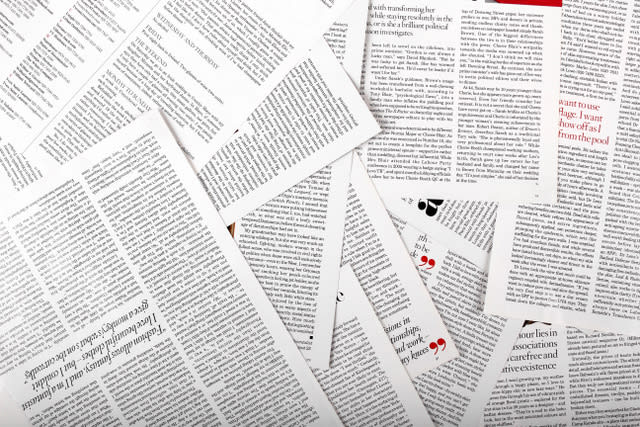How to Get Published in a Peer Reviewed Journal
Getting published is tough, and when it comes to finding post-doctoral jobs and positions, a skilful publication record is a must. But bookish journals are picky, and the competition is steep. A lot of early on-career academics feel that information technology'due south impossible to break through the barriers and get their first article published, and constant rejection tin take a toll on researcher's motivation and morale. There's no single trick to getting published, but at that place are a lot of ways that yous can improve your chances of acceptance. Hither are 7 means to make your piece of work stand up out from the crowd and concenter the right kind of attention from editors.
 1. Give yourself enough time
1. Give yourself enough time
Early-career researchers are busy, and while the need to publish is pressing, they take lots of other responsibilities which can make writing difficult. One of the biggest mistakes that post-doctors brand in the publication process is that they don't requite themselves enough fourth dimension. It's tempting to burn down off article after article in the hopes that one will striking the mark, only writing for journals isn't the same as writing a term paper. You need to programme carefully, write deliberately, and accept the fourth dimension to reconsider and edit your work. Don't effort to do information technology all at once. Luckily, most calls for papers in academic journals go out weeks if not months before their deadlines, so check regularly in applicable publications, and when you find a call that suits your research area, brand sure that you have time to programme, enquiry, write, and edit your work.
 2. Ask for assist
2. Ask for assist
The postal service-doctoral world can feel very lonely, particularly after years working in an academic section as a pupil surrounded by peers, instructors, and advisors. Merely but because you've graduated doesn't mean you take to get it alone. Your sometime advisers have a vested interest in your success, and your old classmates are likely looking for the same sort of support. So keep in touch on with your inorganic chemistry lab partner and contact your thesis counselor when yous need a reference or someone to assess your research ideas. If you were involved in a post-graduate association, see if there'south a way to stay involved.
 three. Target the right journal
three. Target the right journal
Certain, nosotros all want to exist published in the American Historical Review or the Annals of Mathematics, just the biggest journals are non e'er the best selection for a get-go publication. Instead, try to observe publications that are more than specifically oriented towards your thesis. Or find a periodical that specializes in one of the sub-topics of your dissertation. Smaller journals or university-based publications often focus on more than niche topics and can be the perfect place to publish your chapter on ancient Roman religions in Britain or your sociological research into street-performance. Whatever your research topic, there'due south likely a related peer-reviewed journal, or at least an up-coming special issue, that focuses on your academic specialty.
 4. Follow instructions
4. Follow instructions
Another big mistake that academics make when submitting for publication is that they ignore the editor's instructions. Don't submit your entire thesis when the periodical has asked for a 300-give-and-take abstract. And just equally it'southward important to select the correct journal for your submission, make certain that you provide the context for your research requested by the editor. Journal editors receive countless numbers of submissions, and they have to narrow their selections as much as possible from the outset. Make sure that your submission is articulate, follows the instructions, and is equally applicable every bit possible to the context of the periodical.
 v. Have and embrace criticism
v. Have and embrace criticism
Hurrah! The journal accepted your submission, yous gave yourself lots of time to write and review, and produced what you lot idea was an excellent article. But the editor sent it dorsum with revisions and critiques. Don't panic and don't surrender. Just because you've earned your championship, doesn't mean your work is perfect. When yous were a educatee, you dealt with criticism on a regular basis, and your adviser always sent your drafts back covered in crimson. So utilize the editor's critique and take another look at your submission. Maybe the editor has highlighted areas where you demand to be more than (or less) specific. Perhaps you need to reconsider some of your sources or be more than counterbalanced in your argument. Criticism is good. Criticism is how nosotros grow equally researchers and as writers.
 6. Re-submit
6. Re-submit
And don't assume that returned submission means that the journal won't publish your paper. Often, academics give up and fail to resubmit after a periodical has asked for revisions, simply this is a huge mistake. Remember, this is the point of peer-reviewed journals. Scholarly publications are designed to vet and challenge professional academics in the hopes of disseminating useful and accurate knowledge. Use the criticism and suggestions to improve or revise your work, and then send information technology dorsum. As long as the publication is asking you to better your work, they're still interested.
 7. Be Patient
7. Be Patient
Getting published takes time, and merely a small minority of early-career researchers have their work accustomed on the start try. Certain, it feels horrible to have your paper rejected, especially afterwards all the work you put into information technology. Simply you just take to try again. And again. And again. In the meantime, don't let your skills stagnate. Apply to review books and articles in your field. Reviews are easier to publish and help you to stay upwardly-to-date on new publications (plus, you usually become the book for complimentary!) Or look for opportunities in academic publications like textbooks, encyclopedias, and collections. In some cases, yous can earn money, or at to the lowest degree receive a copy of the publication. If nothing else, proceed active on a pet inquiry projection, work on editing and improving your dissertation, or even just start a web log.
Source: https://www.phdstudies.com/article/How-to-Get-Published-in-an-Academic-Journal/
0 Response to "How to Get Published in a Peer Reviewed Journal"
Post a Comment